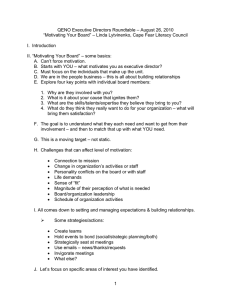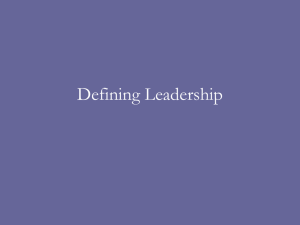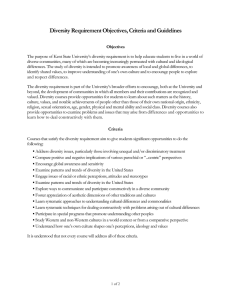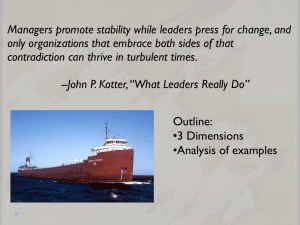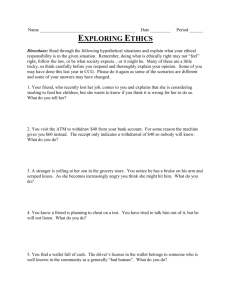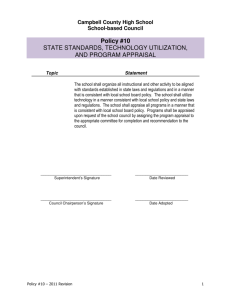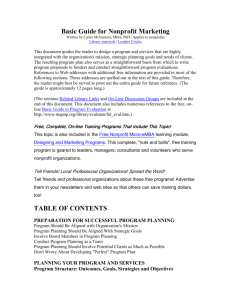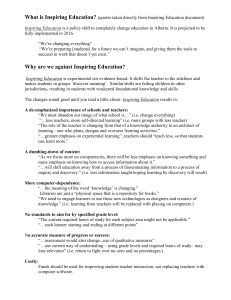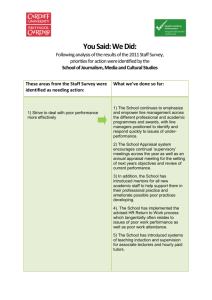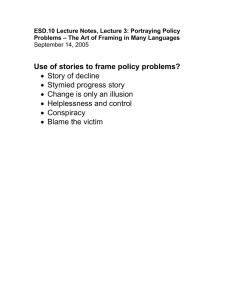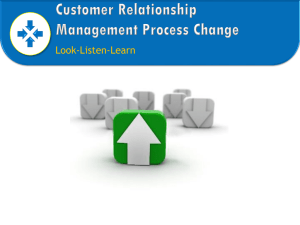Organizational Behavior: Thinking & Acting in Public Sector
advertisement
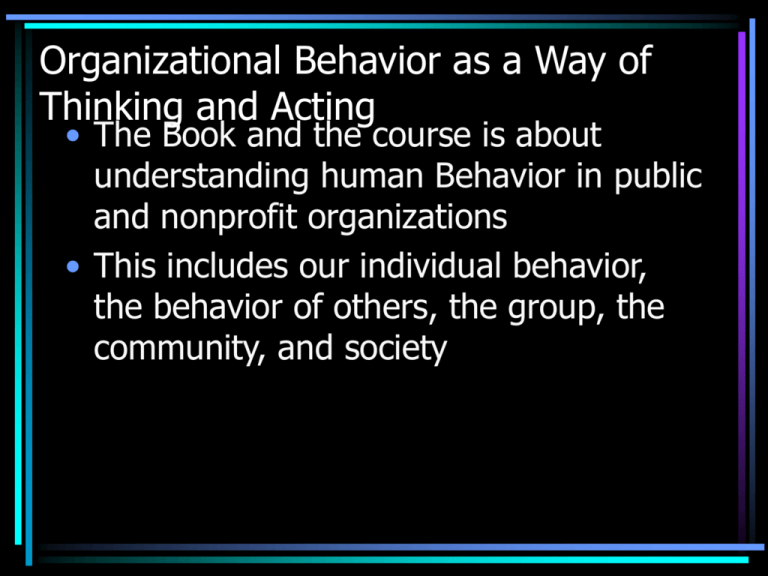
Organizational Behavior as a Way of Thinking and Acting • The Book and the course is about understanding human Behavior in public and nonprofit organizations • This includes our individual behavior, the behavior of others, the group, the community, and society Organizational Behavior • Emphasizes human behavior and individual values rather than organizational structures and organizational values Organizational Behavior Levels of Analysis • • • • • Individual Behavior Group Functioning Organizational Operations Community Considerations Society Organizational Behavior Levels of Analysis • Individual Behavior – Problems with motivation – Failure of employees to communicate with the public – Employees who fail to understand the broader purpose of the organization—the mission and values of the organization and unit Organizational Behavior Levels of Analysis • Group level – Do existing groups function effectively? – Do people feel like part of a team? – Do team members understand group process and have leadership skills Organizational Behavior Levels of Analysis • Organization Level – Does the organization have a structure to accomplish its goals? – Are management systems in place (e.g. goal setting and performance appraisal). – Is there a strategic plan? – Are resources tracked and allocated to the areas of highest need? – Is organizational communication clear, policies documented and disseminated? – Is hiring and training adequate? Organizational Behavior Levels of Analysis • Community and/or Society Level – Is the organization receiving adequate funding? – Is their a relationship with key funding representatives? – How does society value the work of the organization? – How can it be demonstrated to the public that important work is being done by the organization? Aspects of Individual and Group Behavior Related to Organizations • • • • Motivating employees Being and effective team member Leading and inspiring others Communicating effectively with others – inside and outside of the organization • Making effective decisions • Using power and politics constructively and ethically Aspects of Individual and Group Behavior Related to Organizations • Creating and securing commitment to shared values • Managing conflict productively • Using diversity to enhance organizational performance • Helping people become more innovative and creative What is the Starting Point? Theory Vs. Behavior Assumptions of Organizational Behavior • Human behavior is purposeful – goal directed • Human behavior is not random – it is caused – reasons have reasons • Behavior can be changed through learning • People should be valued • Public service is about serving others
